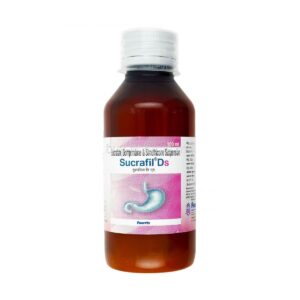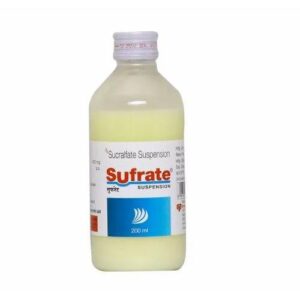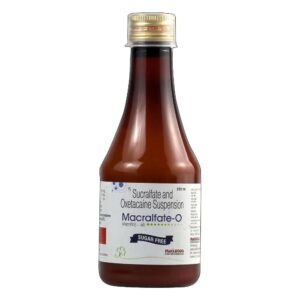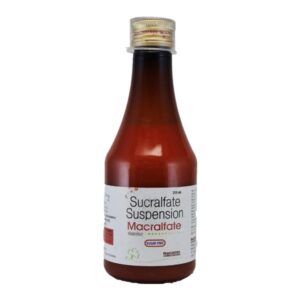SUCRALFATE
SUCRALFATE: SUCRALFATE is a medication used for the treatment and prevention of duodenal ulcers. It is also prescribed to help protect the lining of the stomach and intestines from damage caused by gastric acid. Sucralfate belongs to a class of medications called mucosal protective agents.
The mechanism of action of SUCRALFATE involves forming a protective layer over the ulcer or damaged areas of the stomach and duodenum, forming a physical barrier against stomach acid, bile salts, and enzymes. This protective layer also promotes the healing process by stimulating the production of prostaglandins, which are natural substances that help maintain the integrity of the gastrointestinal mucosa.
SUCRALFATE is usually taken four times a day, on an empty stomach, and at least one hour before meals or on an empty stomach at bedtime. The dose may vary depending on the severity of the condition and the individual’s response to treatment. It is important to follow the prescribed dosage and schedule.
Common side effects of SUCRALFATE include constipation, dry mouth, upset stomach, indigestion, flatulence, and nausea. These side effects are usually mild and temporary. If any severe or persistent side effects occur, it is essential to inform a healthcare professional.
It is important to note that SUCRALFATE may interact with certain medications, including cimetidine, digoxin, phenytoin, and tetracycline. Therefore, it is crucial to inform the prescribing doctor about all other medications being taken to avoid potential interactions.
In conclusion, SUCRALFATE is a medication used for the treatment and prevention of duodenal ulcers. It works by forming a protective barrier over ulcers and damaged areas and promotes healing. The dosage, frequency, and duration of treatment should be followed as prescribed by a healthcare professional.





